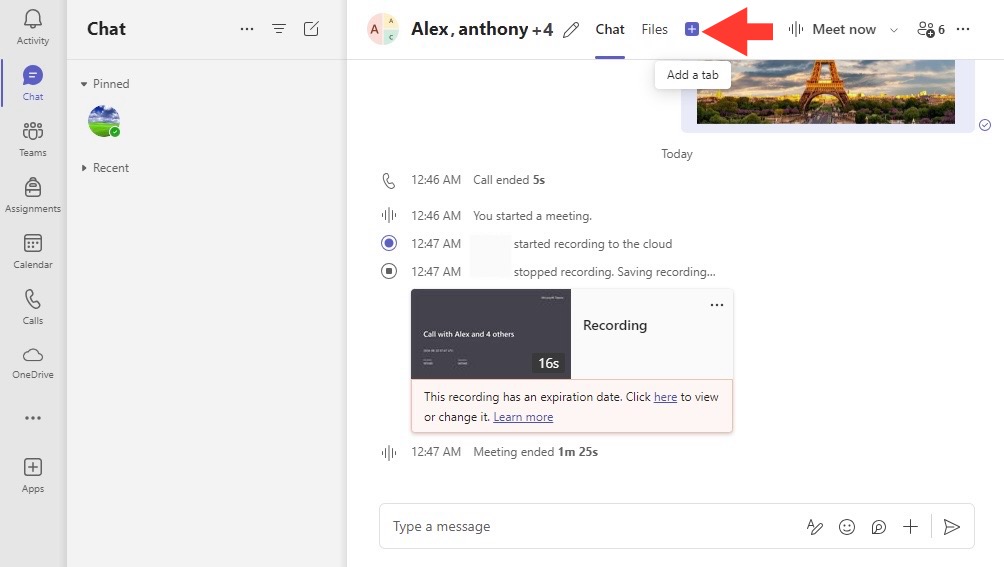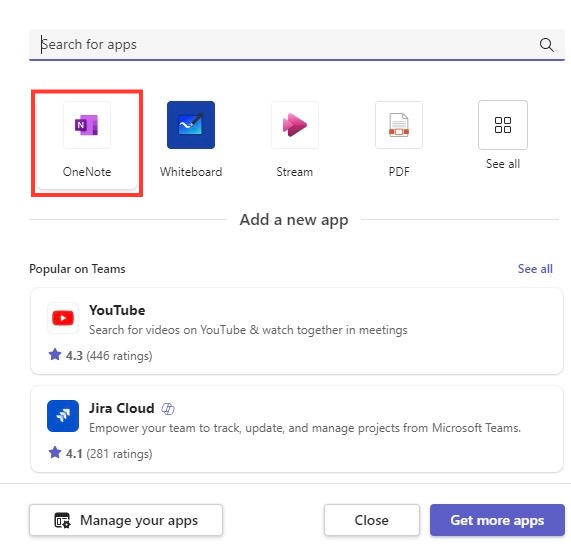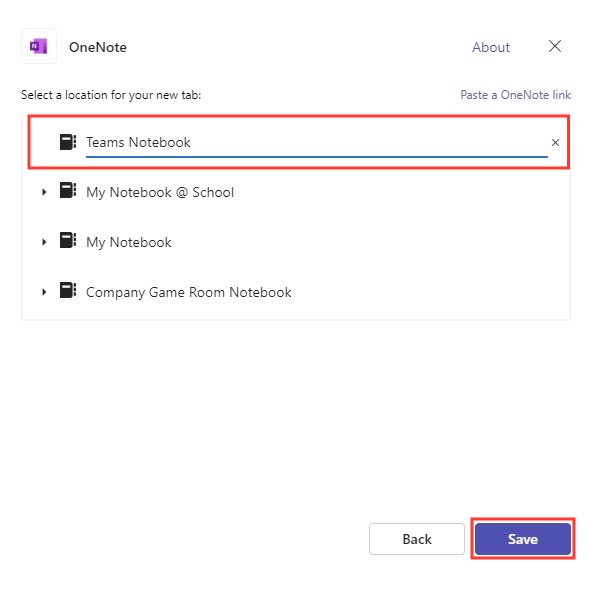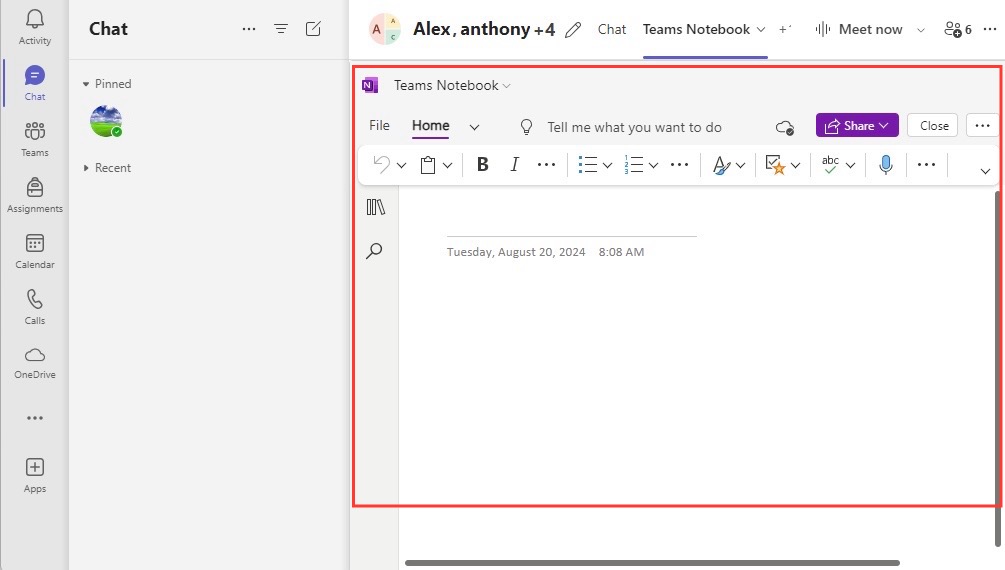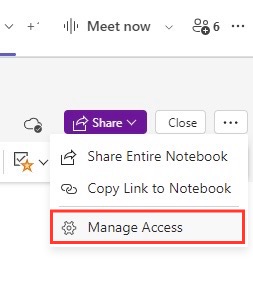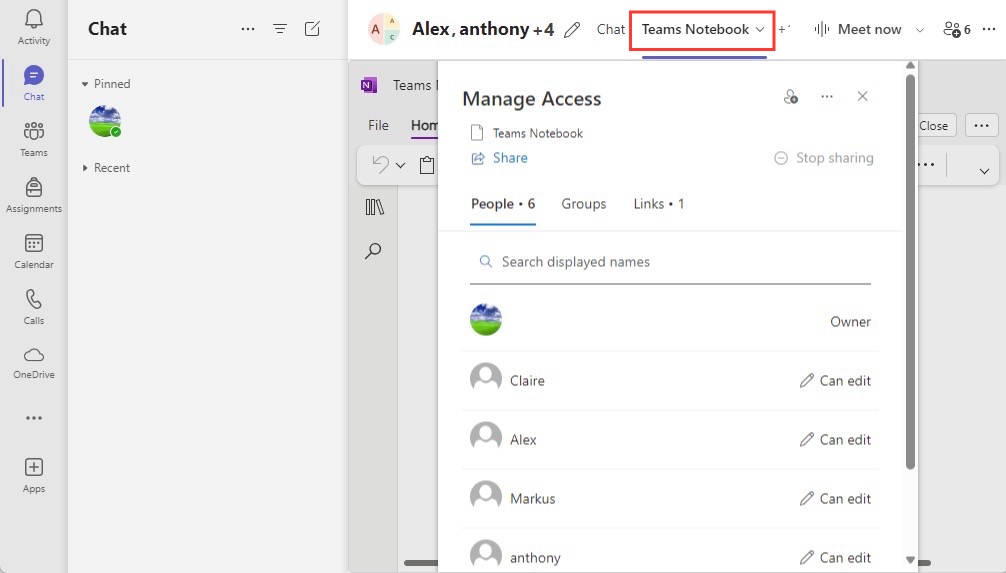The intersection of Microsoft OneNote and Teams propels our collaborative efforts into a streamlined, efficient, and, frankly, a seamless experience. Imagine the power of juggling your thoughts, ideas, and tasks all in one place, and that’s precisely what this synergy offers. As I’ve come to rely on this duo, they’ve not just coexisted but thrived together, making our remote collaboration feel more like a well-oiled in-office workflow.
Key Takeaways
- Leverage OneNote in Teams by using the Outlook and OneNote integration feature. This allows for automatically importing meeting details simply by clicking “Insert > Meeting notes” and selecting the relevant meeting, thus streamlining the note-taking process.
- Enhance remote collaboration by adding a OneNote notebook as a tab within a Teams channel, making it more accessible for team members to contribute to shared notes, training materials, and feedback in real-time, fostering a collaborative environment.
- Utilize OneNote’s robust ‘Draw’ tab during Microsoft Teams calls to create a virtual whiteboard experience, ideal for brainstorming sessions and planning, providing a dynamic way to engage with team members during video calls.
Why Mastering OneNote within Teams is Beneficial for Your Organization
Mastering OneNote within Teams is akin to equipping ourselves with a multi-tool for organizational efficiency. Why? Because it unlocks a wealth of collaborative potential. We can eliminate countless back-and-forth emails, centralize often-scattered resources, and maintain a single source of truth for various project details. It can be transformative for different departments, from streamlining sales processes—as laid out in a well-organized Sales Playbook—to consolidating research and development notes. This mastery essentially turns OneNote into our digital binder for success, ensuring that no vital information is ever more than a few clicks away.
Table of Contents
Setting Up OneNote for Team Success
How to Add a OneNote Notebook to a Team Channel
STEP 1: Open Microsoft Teams and go to the channel where you want to add OneNote.
STEP 2: At the top of the channel, click on the `+` icon to add a new tab.
STEP 3: In the list of apps, select OneNote.
– You can pick an existing notebook.
– Create a new notebook from scratch.
– Link to an existing notebook stored elsewhere.
STEP 4: Once you’ve made your selection, click Save. This will add the OneNote tab to your channel.
The OneNote tab is now available for all team members with access to the channel. Everyone can view and edit the notebook, making it a central hub for team collaboration.
Best Practices for Creating and Managing Multiple Notebooks
When wielding the power of OneNote within Teams, creating and managing multiple notebooks should be done with a strategic mindset. Here’s how we can stay on top of it:
- Establish clear naming conventions for easy identification and access—consistency is our ally.
- Separate notebooks by project, department, or function to keep everything compartmentalized.
- Regularly review and archive content to prevent clutter from accumulated legacy notes.
- Implement a clear structure within notebooks using sections and pages, ensuring that finding information is like finding that one book in a well-organized library.
- Share notebooks judiciously and strategically, so team members aren’t overwhelmed by information that’s irrelevant to their roles.
Collaborative Features of OneNote in Teams
Real-Time Collaboration and Sharing in OneNote
Real-time collaboration in OneNote is truly a game-changer. We can dive into a digital notebook simultaneously, making annotations, revisions, and additions while we see our colleagues’ cursors dance across the screen alongside ours. It’s collaborative working at its best, almost as though we’re grouped around a physical whiteboard, except with the added benefit of being miles apart if needed. We can share singular pages or entire notebooks, bringing transparency and immediacy to our teamwork. Moreover, any changes are synced across devices instantly—meaning whatever I do on my tablet at the coffee shop is immediately accessible to my teammate on their desktop back at the office.
Making the Most Out of OneNote’s Interactive Meeting Minutes
To maximize OneNote’s capacity for interactive meeting minutes, we begin by syncing it with our Outlook. This pulls meeting details directly into our digital notebook. Then, I energetically type away, capturing insights, action items, and key decisions as we move through our agenda. Here’s the beauty part: We’re not just jotting down notes—we’re creating an interactive record. We can embed links to relevant documents, tag teammates for follow-ups, and even assign tasks. After the meeting, it’s a breeze to share these notes through a link, ensuring everyone is on the same page—even those who missed out can catch up swiftly. And let’s not forget, this record isn’t static; we can revisit and update it as initiatives progress, keeping the momentum of that meeting alive and actionable.
Advanced OneNote Strategies for Teams Users
Password-Protect Sensitive Notes to Ensure Privacy
When it comes to sensitive notes, privacy is paramount. That’s why password-protecting specific sections in OneNote is a feature I value immensely. By right-clicking on a section and selecting “Password Protect This Section,” we can set a strong, unique password that guards our confidential information. This means that even within a shared notebook, there are vaults only accessible to those with the key—a safeguard that brings peace of mind. Remember, if we forget this password, not even OneNote can retrieve it for us; it’s the digital equivalent of a lock and key. So, I ensure the password stays memorable but complex enough to deter unauthorized access.
Leveraging Page Templates for Consistency Across Projects
Taking advantage of page templates in OneNote is akin to providing a tailored suit for our projects—ensuring they look sharp and consistent. These templates serve as a foundation for each new page I create, maintaining uniformity across our documentation. Whether it’s for meeting minutes, project plans, or brainstorming sessions, having a pre-set layout streamlines our work and enhances readability. As I customize these templates, I bear in mind to leave ample space for all types of content—text, images, tables—and to consider the logical flow of information. The ultimate benefit? A professional and cohesive look for our notebooks that reflects the meticulous nature of our work.
FAQs about OneNote in Microsoft Teams
How Can I Access OneNote from Microsoft Teams?
Accessing OneNote from Microsoft Teams is straightforward. I simply navigate to the Team where the notebook is located, find the relevant channel, and there it is—a OneNote tab proudly sitting alongside others. Clicking on this tab opens up our shared workspace directly within Teams, ensuring a smooth and integrated experience. It’s essential to first ensure that OneNote has been added as a tab, which any team member with adequate permissions can do for the benefit of the group.
Can I Secure My OneNote Content Within Teams?
Yes, I can definitely secure my OneNote content within Microsoft Teams. For individual sections, I use OneNote’s built-in password protection, creating a secure layer over private notes. What’s more, Teams itself adds another level of security through its permissions system. Only those assigned to a team and granted access can view or edit the shared notebooks, ensuring our sensitive information stays just that—sensitive and confidential.
What Are Some Ways to Use OneNote for Project Management in Teams?
OneNote is a versatile tool within Teams for project management. I can use it to centralize all project communication, create a shared space for meeting minutes, or manage a dynamic to-do list where tasks are tracked and updated. It’s also ideal for building a project wiki that houses all notes, resources, and guidelines in one place, ensuring consistency of information across the team. Additionally, integrating OneNote with Power Automate to create workflows automates repetitive tasks, saving time and reducing error. It’s like having a digital project binder updated in real-time for all members to utilize efficiently.
John Michaloudis is a former accountant and finance analyst at General Electric, a Microsoft MVP since 2020, an Amazon #1 bestselling author of 4 Microsoft Excel books and teacher of Microsoft Excel & Office over at his flagship MyExcelOnline Academy Online Course.

